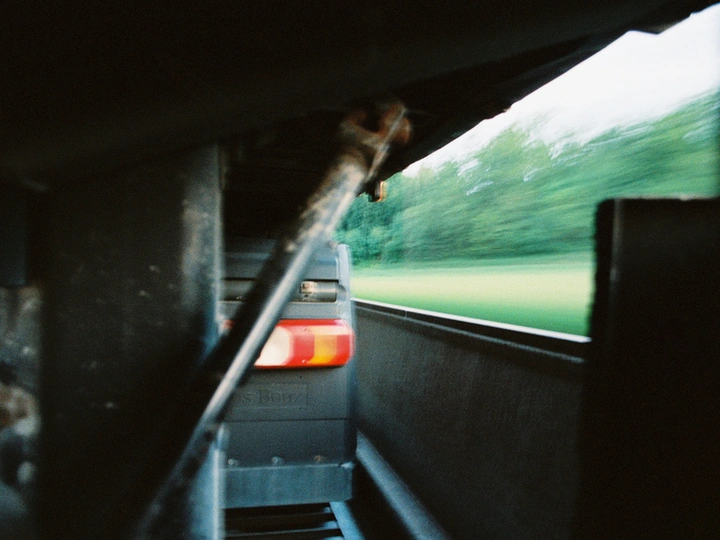Hobos : an alternative territorial narrative

Mike Fritsch is a Luxembourgish architect-urbanist, researcher, curator, and educator based between Paris and Luxembourg. His work centers on post-disciplinarity as a framework to explore entangled ecologies and investigate territorial transformations. Through experimental methodologies and extensive fieldwork, media and medium, he produces alternative territorial narratives that reveal layered understandings of built and unbuilt environments.
As a practicing architect, Mike operates between large-scale urban interventions and focused architectural repairs, both independently and in collaboration with l’AUC. He currently teaches at ENSA-Marseille, where he develops critical approaches to territory, emphasizing adaptation and social dynamics within existing urban contexts. These themes form part of a broader research agenda employing diverse strategies to engage complex ecological relationships and thus our spatial practices.
Co-curating the Luxembourg Pavilion at the 19th Venice Biennale 2025 alongside Alice Loumeau and Valentin Bansac, Mike presented “Sonic Investigations”—a project inviting audiences to attune to evolving territorial conditions through sound. This exhibition featured contributions from sound artist Ludwig Berger, researcher Anthea Caddy, and was accompanied by the publication Ecotones: Investigating Sounds and Territories, co-edited with musicologist and philosopher Peter Szendy and published by Spector Books.
The increasing prevalence of digital representations has contributed to a dematerialized and standardized perception of spatial environments. Tools like GPS and Google Street View mediate spatial experience with intuitive immediacy. As a critical counterpoint to this dilution of space, this project explores alternative modes of territorial representations. By emphasizing practitioners’ embodied presence, it seeks to reconfigure how territory is perceived and inhabited, generating diverse representations that open new dialogues.
Practices often deemed “marginal” provide fertile ground for alternative, critical, and radical territorial engagements—rooted in interstitial, overlooked map spaces. These reflect a counter-cartography challenging dominant spatial narratives.
Documenting the European subculture of Hobos and their territorial practices—rooted in a long history of seasonal migration, oral maps, and territorial languages such as monikers—this ongoing embodied ethnographic study, part of broader research grounded in spatial practice, investigates how alternative territorial narratives can engage with contemporary issues ranging from climate change to social constructs.
Our growing detachment from the territories we inhabit has fostered a conceptual divide between human and more-than-human worlds, shaping a worldview where humans are observers or antagonists rather than integral to ecological systems. Amid the ecological crisis, re-narrating territory through plural, situated perspectives offers ways to rethink these ecologies.
Viewing the multiplicity of territories as contemporary Terrae Incognitae, as Hakim Bey describes in T.A.Z., allows for more nuanced, plural, and affective narratives about the landscapes and systems we inhabit. As urban and architectural practitioners, we aim to generate new cartographies and spatial narratives that critically reflect our evolving relationships to built and natural environments, and thus our spatial practice.